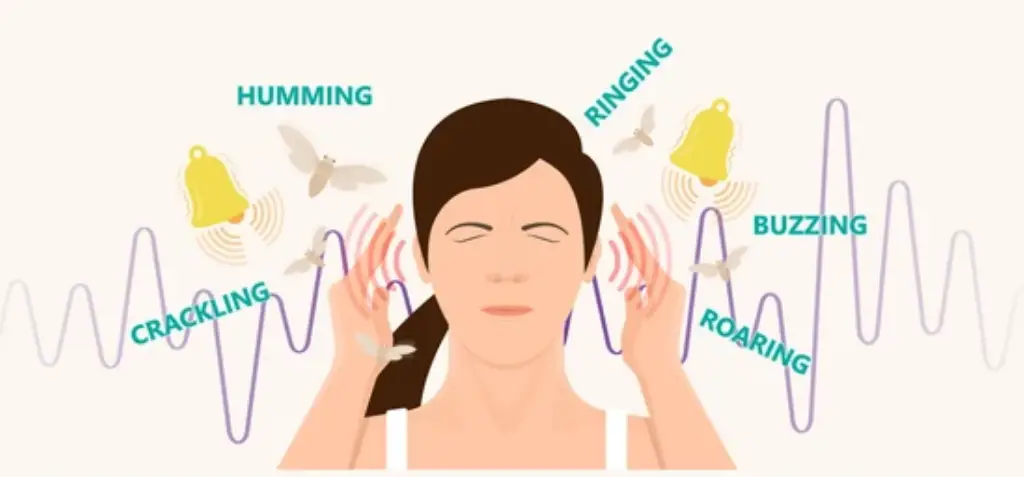Do you ever find yourself muttering to yourself, “I hate my tinnitus” or “I can’t stand this ringing in my ears?” If so, you are not alone.
More than half of the American population experiences at least a few days a month, where they experience ringing or buzzing in their ears. And for some, that constant noise is a lot more than just annoying — it’s also a physical and emotional burden.
It can interfere with our sleep, make it difficult to focus on things at work or school, and make it hard to carry on a normal conversation with friends and family members.
Can keto diet help tinnitus? A ketogenic diet — which is high in fat and low in carbohydrates — could help ease the symptoms of tinnitus by spinning back the clock on hearing loss while helping to restore hearing that has been affected by noise-induced hearing loss.
In fact, research suggests that people with chronic tinnitus who adopt a ketogenic diet may experience less ringing in their ears compared to those who do not follow the high-fat eating plan.
Related: Do Antibiotics Affect the Ketogenic Diet?
What Is Tinnitus?

If you’ve ever heard ringing or buzzing in your ears, you’ve experienced tinnitus. Tinnitus is a condition that affects roughly 10%-15% of people, and while it is most common in older adults, it can affect people of any age. It’s often described as a “ringing in the ears,” but it can also sound like clicking or buzzing — even roaring and clicking.
It may seem like the noise is coming from inside your head or from another part of the room, but tinnitus is actually caused by damage to the tiny hairs on the cochlea (the part of your inner ear that changes sound waves into electrical impulses that are sent to your brain).
These hairs are arranged in such a way that they can vibrate when certain sounds hit them. Normally, these vibrations are amplified by hair cells and brought to the auditory nerve — which carries them to your brain — where they are interpreted as sounds (e.g., voices, music).
Causes, Symptoms, and Complications
As we’ve mentioned, tinnitus is not a disease or medical condition but a condition that is caused by external sound waves and that can be relieved by a decrease in external sound waves, such as by wearing earplugs while listening to loud noises, wearing hearing protection while working in a loud environment, etc.
Although there may be several causes of tinnitus, the most common ones are:
Earwax: Your earwax is an important natural antiseptic that helps to keep your ears healthy. However, if it starts collecting in your ears and makes your ears itchy or watery, then you may have an ear infection.
Hearing loss: The most common reason for hearing loss is middle ear infection, but it can also occur as the result of an earring in the ear or of loud noises.
Age: As we age, our hearing gets less sound-conducting chonae in our ears, making it harder for us to hear sound. Tinnitus: Tinnitus can be a symptom of another condition, such as hearing loss or vestibular disease or be itself.
How Does Tinnitus Affect Your Life?

For many people with tinnitus, ringing in their ears is simply an annoyance that disrupts their sleep at night. But for others — about 1 in 5 — tinnitus can be a more serious problem. They may have difficulty sleeping, become depressed and anxious, or suffer from constant headaches.
Some people with severe cases of tinnitus even become suicidal. The good news is that there are many ways to help you manage your condition and ease your symptoms.
Can Keto Diet Help Tinnitus?

The ketogenic diet is a very low-carb, moderate protein, and high-fat diet. It can help with tinnitus by lowering insulin levels, which in turn lowers blood sugar levels.
When the blood sugar levels are lowered, it reduces the amount of insulin that is produced by the pancreas. Since insulin is a hormone that causes the body to have increased conversion of carbohydrates into glucose, lowering insulin levels decreases this conversion and hence lowers the blood sugar levels.
The ketogenic diet also helps with tinnitus by reducing inflammation in the body caused by eating grains, sugars, and processed foods. Inflammation is a contributing factor to many chronic health conditions, such as diabetes, heart disease, and cancer.
Therefore when you eat fewer grains, sugars, and processed foods and more healthy fats like those found in nuts, avocados, and coconut oil (in addition to vegetables), you will be able to reduce inflammation in your body.
Furthermore, following a ketogenic diet can also help reduce oxidative stress on your cells because of their increased ability to use fat for energy instead of carbs or glucose. Oxidative stress has been linked with many chronic diseases such as cancer and heart disease because it damages our cells’ DNA resulting in abnormal cell functioning or cell death (apoptosis).
Therefore reducing oxidative stress through eating healthy fats instead of carbs can help us live healthier lives!
The Bad News: Is a Ketogenic Diet for Tinnitus?
Unfortunately, a ketogenic diet will not help everyone with tinnitus. You may have to try it for at least a month to see if it makes a difference, and you may also have to take other additional measures to improve your tinnitus.
Although it may sound like a strange approach, the good news is that it is not an experimental treatment. It has been proven to work, and there are several proven strategies that can also be used to reduce your symptoms.
One of the most important things you can do is to become more familiar with your surroundings. This will help you to identify sounds that are not normally heard, such as traffic noises or waterfalls.
When you hear a sound you do not normally hear, such as a voice or the beeping of an alarm, you can ask yourself if it is pitch-feeling or volume-feeling.
Possible Association Between Physical Activity and Tinnitus

Physical activity is an important part of your overall health. It can help you to maintain a healthy weight, reduce your risk of developing chronic diseases, and improve your mood. In addition, it has been shown that people who regularly exercise are less likely to experience tinnitus symptoms.
However, it is still unclear whether this association is due to physical activity or other factors associated with regular physical activity, such as a healthy diet and reduced stress levels.
Therefore, more research is necessary before we can draw any conclusions about the potential benefits of regular physical activity for reducing tinnitus symptoms.
How to Alleviate Tinnitus With the Eric Berg Tinnitus Technique
One treatment option many people are turning to these days is the Eric Berg Tinnitus Technique. This method has been used by tens of thousands of people worldwide who suffer from various types of tinnitus to eliminate their symptoms without resorting to drugs or invasive procedures.
He developed his method based on his experience with tinnitus and his years working with patients who suffered from this condition every day.
Frequently Asked Questions
Does low-carb diet help tinnitus?
The most common cause of tinnitus is hearing loss, but it can also be caused by other factors, such as exposure to loud noise or medications. A low-carb diet can help reduce the risk of tinnitus by reducing the amount of sugar in the body. Low-carb diets are also known to help reduce inflammation in the ears, which can contribute to tinnitus. The reduction in carbohydrates in your diet may decrease your tinnitus symptoms.
What is the best diet for tinnitus?
There are several different diets that can help treat tinnitus. One of the best diets for tinnitus is a diet that is high in protein and low in carbohydrates. This is because protein and carbohydrates are important for producing neurotransmitters, which are chemicals that help send signals from the brain to the ears. Low-carbohydrate diets are also known to help reduce inflammation in the body, which can be associated with tinnitus.
Is tinnitus linked to diet?
Tinnitus can also be caused by medications or lifestyle factors, so it is important to keep an eye on your diet if you have tinnitus. It is most commonly associated with hearing loss but can also be caused by several other things, including medication or disease. Overall, it seems that eating a healthy diet may help reduce the risk of developing tinnitus.
What foods trigger tinnitus?
The most common cause is loud noise exposure, but it can also be caused by exposure to loud music, loud voices, or even a loud environment. There are several foods that can trigger tinnitus, including sugar, alcohol, MSG (monosodium glutamate), MSG-containing foods, processed foods, processed meats, processed dairy products, processed fruits, and, vegetables.
Can losing weight stop tinnitus?
People who lose weight and eat a healthy diet can reduce their risk of tinnitus. Diet can also help people with hypertension and diabetes to lower their blood pressure and improve their blood flow to the brain. Diet can also help people with weight loss to feel more energetic and less tired.
Conclusion
Can keto diet help tinnitus? The Keto diet works by drastically reducing your carb intake, especially your carbs from sugars (glucose). The brain needs glucose for energy, but when there is not enough sugar available for the body to use as fuel, the brain turns to ketones for energy instead.
This state of ketosis helps your brain survive during times when there are no sugars available from carbs (such as when fasting or sleeping). It also helps stop blood sugar spikes and reduces cravings for sweets to reduce excess blood sugar levels.
The keto diet has been shown to be an effective way to lose weight and may even have benefits for those suffering from epilepsy, tinnitus, and other seizure disorders.















